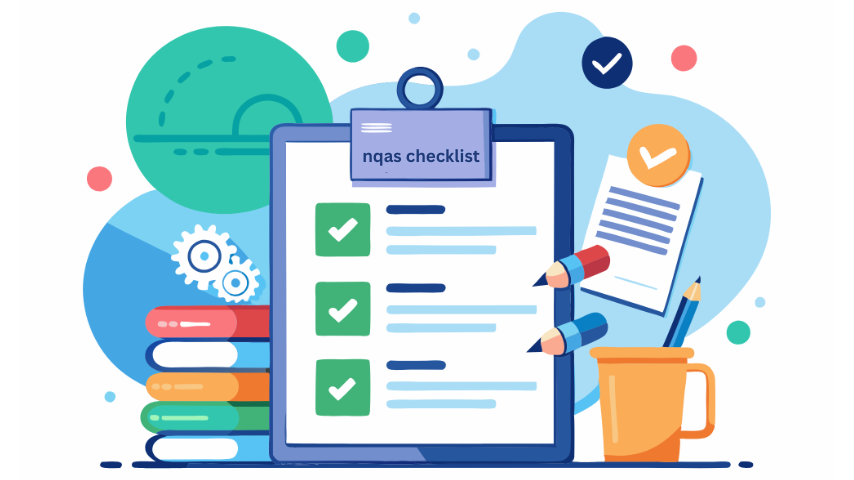The National Quality Assurance Standards (NQAS) program plays a crucial role in maintaining healthcare quality across facilities. Understanding who can become an NQAS assessor is essential for healthcare professionals looking to contribute to quality improvement initiatives. This comprehensive guide will walk you through all aspects of NQAS assessor eligibility, requirements, and the application process.
Understanding NQAS Assessor Roles and Responsibilities
Before diving into eligibility criteria, it’s important to understand what NQAS assessors do. These professionals are responsible for:
- Conducting systematic assessments of healthcare facilities
- Evaluating compliance with national standards
- Providing detailed feedback and recommendations
- Supporting quality improvement initiatives
- Documenting findings using the NQAS checklist PDF and other standardized tools
Basic Eligibility Requirements for NQAS Assessors
Educational Qualifications
To qualify as an NQAS assessor, candidates must meet specific educational requirements:
- MBBS degree from a recognized institution
- Post-graduate qualification in Public Health (preferred)
- Additional certifications in healthcare quality management (advantageous)
Professional Experience
Candidates must demonstrate substantial professional experience:
- Minimum 5 years of working experience in healthcare
- At least 3 years in quality assurance or related fields
- Experience with public health programs
- Familiarity with healthcare facility operations
Specialized Requirements for Different Assessment Levels
State-Level Assessors
State-level assessors have additional requirements:
- Experience working with state health departments
- Understanding of state-specific healthcare policies
- Knowledge of regional healthcare challenges
- Ability to travel within the state
National-Level Assessors
For national-level certification:
- Minimum 8 years of healthcare experience
- Experience in multiple states or regions
- Advanced knowledge of national healthcare policies
- Willingness to travel nationwide
Essential Skills and Competencies
Successful NQAS assessors should possess:
Technical Skills
- Proficiency in using NQAS checklist PDF tools
- Data analysis capabilities
- Report writing expertise
- Digital documentation skills
Soft Skills
- Strong communication abilities
- Attention to detail
- Analytical thinking
- Leadership qualities
- Objectivity in assessment
Training and Certification Process
Initial Training
Candidates must complete:
- Orientation program
- Theoretical training sessions
- Practical assessment exercises
- Hands-on facility evaluations
Certification Requirements
To obtain certification:
- Pass the theoretical examination
- Complete practical assessments
- Demonstrate proficiency in using NQAS tools
- Submit sample assessment reports
Maintaining Assessor Status
Continuous Professional Development
Active assessors must:
- Attend regular refresher courses
- Stay updated with latest NQAS guidelines
- Participate in professional development workshops
- Network with other assessors
Performance Monitoring
Assessors are evaluated based on:
- Quality of assessments
- Timeliness of reports
- Accuracy of findings
- Stakeholder feedback
Application Process
Step-by-Step Guide
- Submit application form
- Provide required documentation
- Educational certificates
- Experience letters
- Professional references
- Complete eligibility screening
- Attend mandatory training
- Pass certification tests
Common Application Challenges
- Incomplete documentation
- Missing professional references
- Insufficient experience details
- Inadequate technical knowledge
Q1: What is the minimum experience required to become an NQAS assessor?
A: The minimum requirement is 5 years of healthcare experience, with at least 3 years in quality assurance or related fields.
Q2: Is the NQAS checklist PDF available for practice before certification?
A: Yes, training materials including the NQAS checklist PDF are provided during the orientation and training phase.
Q3: Can I become an assessor without an MBBS degree?
A: While MBBS is preferred, exceptional candidates with relevant post-graduate qualifications in healthcare management may be considered.
Q4: How often do assessors need to renew their certification?
A: Certification renewal is typically required every 2-3 years, depending on performance and continuing education credits.
Q5: Can I work as an assessor part-time?
A: Yes, many assessors maintain their primary healthcare roles while conducting assessments periodically.
Future Opportunities and Career Growth
Advanced Roles
Experienced assessors can progress to:
- Lead assessor positions
- Training coordinator roles
- Quality improvement consultants
- Program managers
Specialization Options
Assessors can specialize in:
- Maternal health services
- Child healthcare facilities
- Specialized medical units
- Rural healthcare centers
Conclusion
Becoming an NQAS assessor represents a significant professional opportunity for healthcare professionals committed to quality improvement. The role requires a combination of educational qualifications, professional experience, and dedicated training. Success depends not only on meeting the basic eligibility criteria but also on developing essential skills and maintaining professional standards.
For those interested in pursuing this career path, careful attention to the requirements and thorough preparation using resources like the NQAS checklist PDF will be crucial. The role offers both personal growth and the satisfaction of contributing to healthcare quality improvement at a national level.
Remember that the field of healthcare quality assessment is constantly evolving, and staying updated with the latest standards and practices is essential for long-term success as an NQAS assessor.





